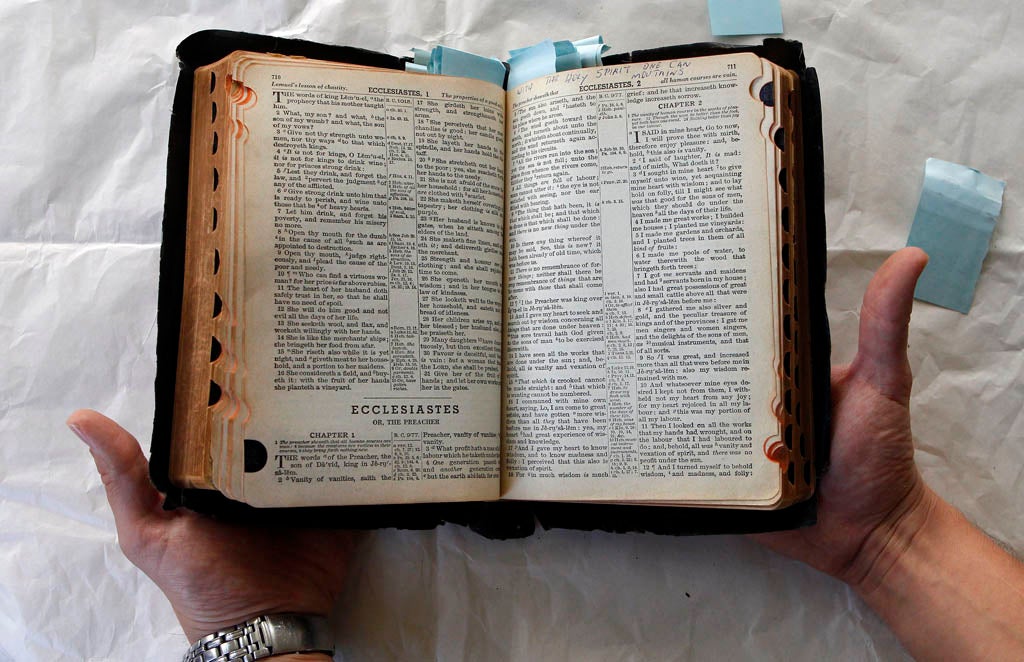Christianity is not the problem. The Bible is.
Despite the Church of England receiving so much criticism in recent months, the issue of the Bible's relevance to the modern world is yet to be addressed

With the recent uproar about the vote against female bishops and the Church of England’s opposition to gay marriage, it looks as if the Christian Church is in a frightening position. I do not have a problem with the Church of England. I happen to think Christianity, and religion in general, is something that should be celebrated and cherished.
For example, the Christian teaching of true charity (giving time and love to people in need, not just throwing money at causes) is something that is incredibly important in modern society. Christianity is not the issue. The Bible is.
I’m a self-proclaimed theology geek and so, naturally, I was excited by the debate surrounding Christianity during the vote for female bishops and gay marriage. ‘Could this be the start of a new denomination’ I thought ‘Will I see another reform?!’ but I have been disappointed that the issue of the relevance of Christianity in the contemporary world had not been addressed, despite it receiving so much criticism in recent months. I can’t help thinking that some of the Bible’s teachings are irrelevant to modern day life and I feel that it is time for Christianity to move on, and that Christians should accept the Bible as a product of its time.
To a degree this is already the case. For example Leviticus outlines that people should not ‘wear clothing woven of two kinds of material’ or eat shellfish, and I’m almost certain that most Christians do not accept these restrictions. Christians could concentrate on concepts such as charity, love, kindness, forgiveness, monotheistic worship and use the Bible just as a guideline for morality, where it can still be applied to modern life. If Christians accepted the Bible as a product of its time there would be no more animosity and hate directed at the Church because of their controversial beliefs that contradict our progressive society.
When I wrote to The Archbishop of Canterbury about my concern of the Bible’s application to contemporary life, Reverend Helen Dawes’ reply outlined that there is a question mark over whether there is a binary choice between being true to the Bible and being true to contemporary experience and that ‘whilst many Christians would like to challenge what they find in the bible, they would not necessarily leave Christian teachings behind’. I do not have Christian faith; it is easy for me to challenge what I find in the bible. But for believers to challenge what the Bible has to say is a different matter. The recent consensus showed a 13 per cent decrease in Christians in the UK, Surely this is an indication that people are struggling to understand how the Bible can still make sense in our ever changing society.
Of course, I am not the only one to question the Bible’s purpose; David Strauss was a German theologian and writer who questioned traditional Christianity and saw the Bible as a book among many books. Strauss recognised the Bible as a piece of literature, a piece of ‘human fiction’, which is an interesting observation. I do not deny the trueness of the Bible, and I understand that the Bible provides invaluable support and guidance for many Christians and non-Christians, but I wonder why parts of the Bible that are not accepted by Christians to be God’s word still have so much authority.
In Christian Discourse: Some Logical Explorations Ian Ramsey outlines how the Bible must be read ‘intelligently’ to find meaning. I see this as a problem for the universality of the Bible. Someone with a good education would have no problem reading the Bible ‘intelligently’, but how do uneducated people find this hidden meaning for themselves? If, like Ramsey says, the Bible is something to be analysed, then who is using the Bible correctly?
It upsets me when Christianity is attacked for its lack of compassion with certain issues such as abortion, euthanasia and homosexuality. I think Christianity can progress by accepting that the Bible is a piece of History, taking from it what is still relevant (for example equality, treatment of the poor and elderly) and perhaps this could be the start of a modern, understanding religion that more people can believe in.
Join our commenting forum
Join thought-provoking conversations, follow other Independent readers and see their replies
Comments
Bookmark popover
Removed from bookmarks